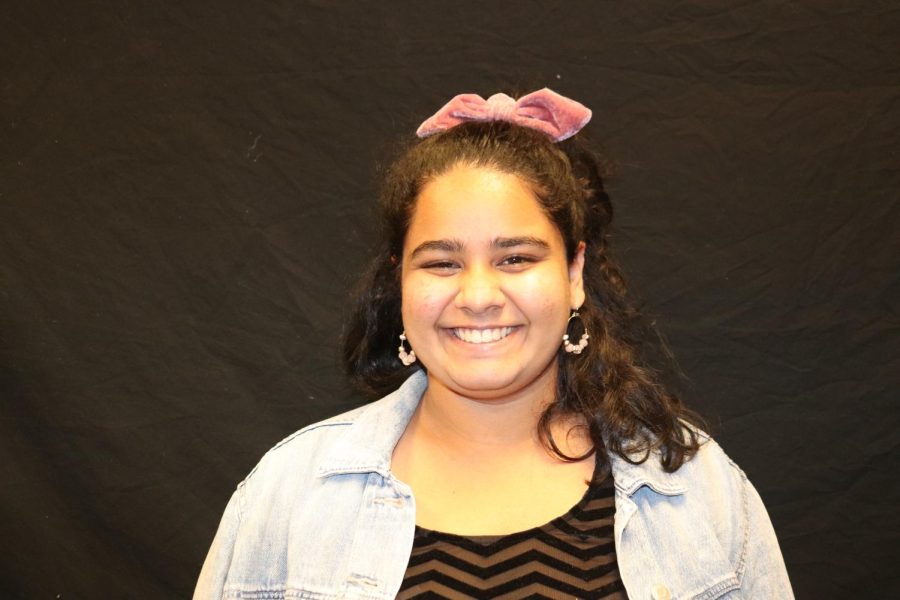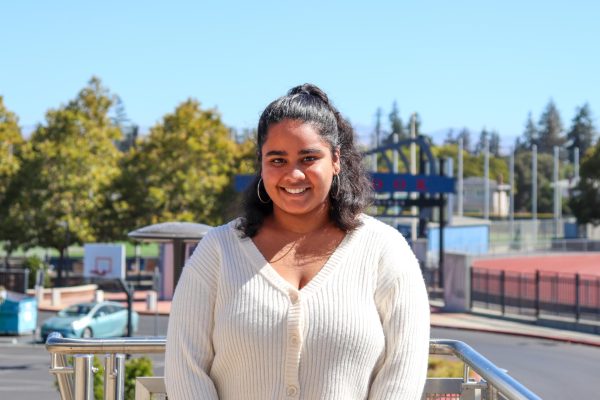Battling insecurities by balancing hormones
May 26, 2022
Before buying clothes for a new school year, I found myself constantly choosing items that were a size larger than my body in an attempt to conceal my shape. These were also the clothes that I got complimented the most in. I would get glares or even laughs on the days when I mustered up the courage to wear something more fitting, and it didn’t take long for me to get used to purchasing oversized clothes without a second thought.
I’ve always been a bigger kid, finding myself constantly frustrated over why it was so hard to lose weight. I consulted numerous nutritionists who all told me the same thing: I will naturally gain weight as I grow. But my weight gain specifically made me look so different from the people around me. My self-image was always polluted by the thought that I would look prettier if I was thinner — I even received more compliments on days I wore clothing that made me look thinner or hid my figure.
I played competitive squash from ages eight to fourteen at least five days a week in two-hour sessions and ate relatively healthy. Yet I still had dark spots around my neck and a hump between my shoulders that made me stand out. A pediatrician told me it could be Polycystic Ovary Syndrome, a condition in which ovaries produce an abnormal amount of androgens, male sex hormones that are usually only present in small qualities in women. 0% of women suffer from hormonal imbalance, and approximately 70% are unaware of conditions like PCOS that manifest due to hormonal irregularities. I was part of that 70%.
A nutritionist who specializes in hormonal imbalance got me started on a vegan diet, as cows are kept pregnant to maximize their dairy production, resulting in high levels of estrogen that negatively affect hormone levels. I began to increase my intake of Cruciferous vegetables, including broccoli, cabbage and cauliflower, which contain an enzyme that supports liver detoxification when broken down.
It’s hard for me to keep track of what I eat all day and maintain ingredients and portion sizes. However, even in the first month of changing my lifestyle, I’ve seen promising results. My dark spots and acne are decreasing, and I’ve lost 8 pounds. This seemingly minuscule difference has changed a lot; I feel lighter and can walk longer distances without getting tired.
While I still have a long way to go, celebrating small victories like losing a pound or going a week without eating anything not plant-based motivates me. I’ve found that weight loss is as much a psychological struggle as it is physical. Restricting diets and intense workout plans can work, but I didn’t have the motivation to change my behaviors without observing the results. As a result of eating a healthier diet and doing these workouts, I feel accomplished and inspired to continue.
Those around me assumed I wasn’t losing weight because I ate the wrong foods and didn’t exercise enough. However, a medical diagnosis was the true culprit. In spite of the fact that many people with hormonal imbalance and other conditions are seen as unhealthy, they are often healthier than those around them, and understanding this has helped to gain closure with long-haunting insecurities. I believe that everyone who is and doesn’t want to be overweight has a story.



































































